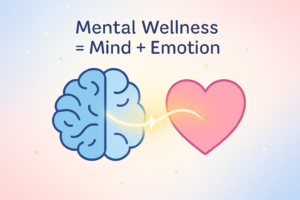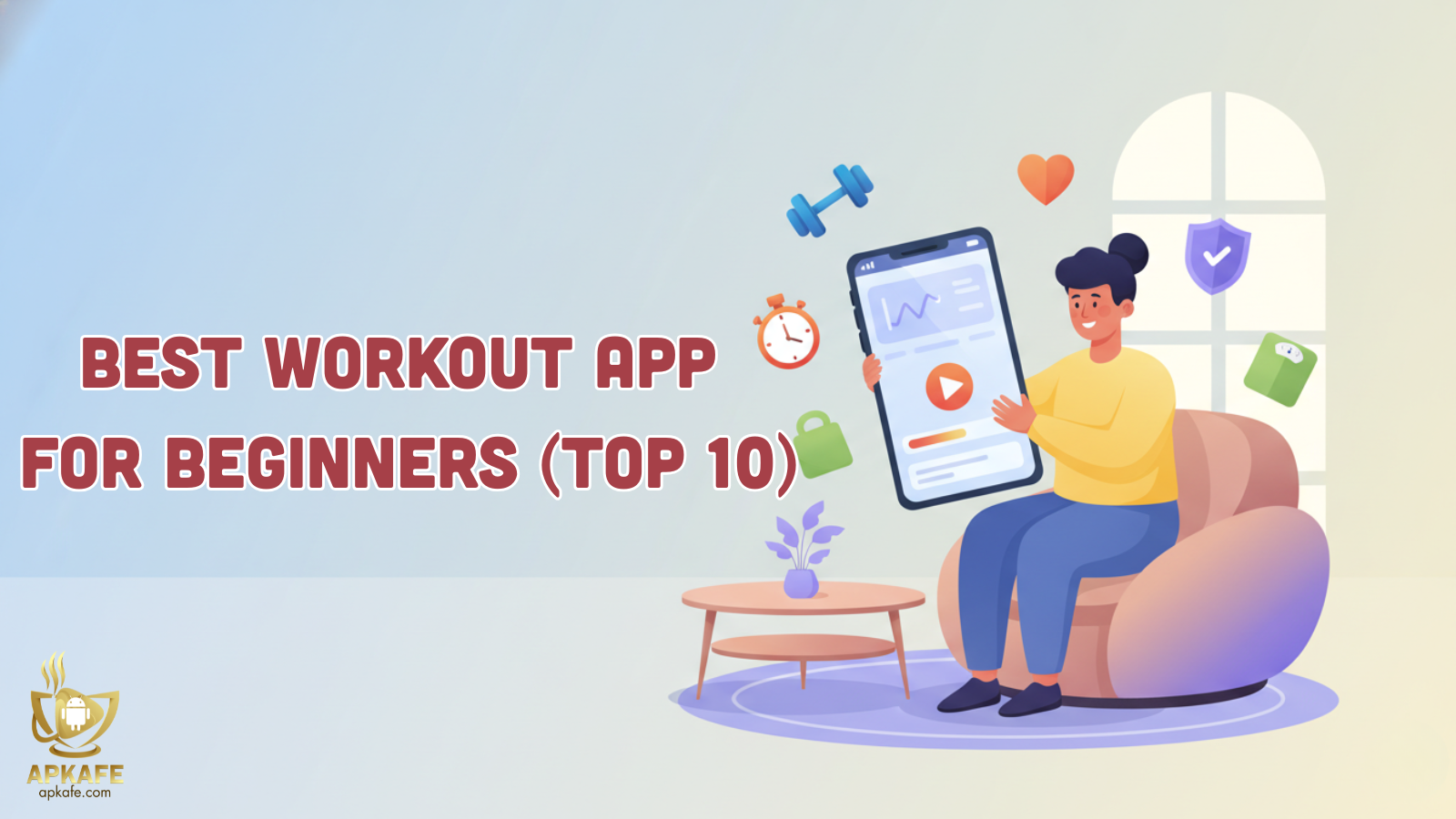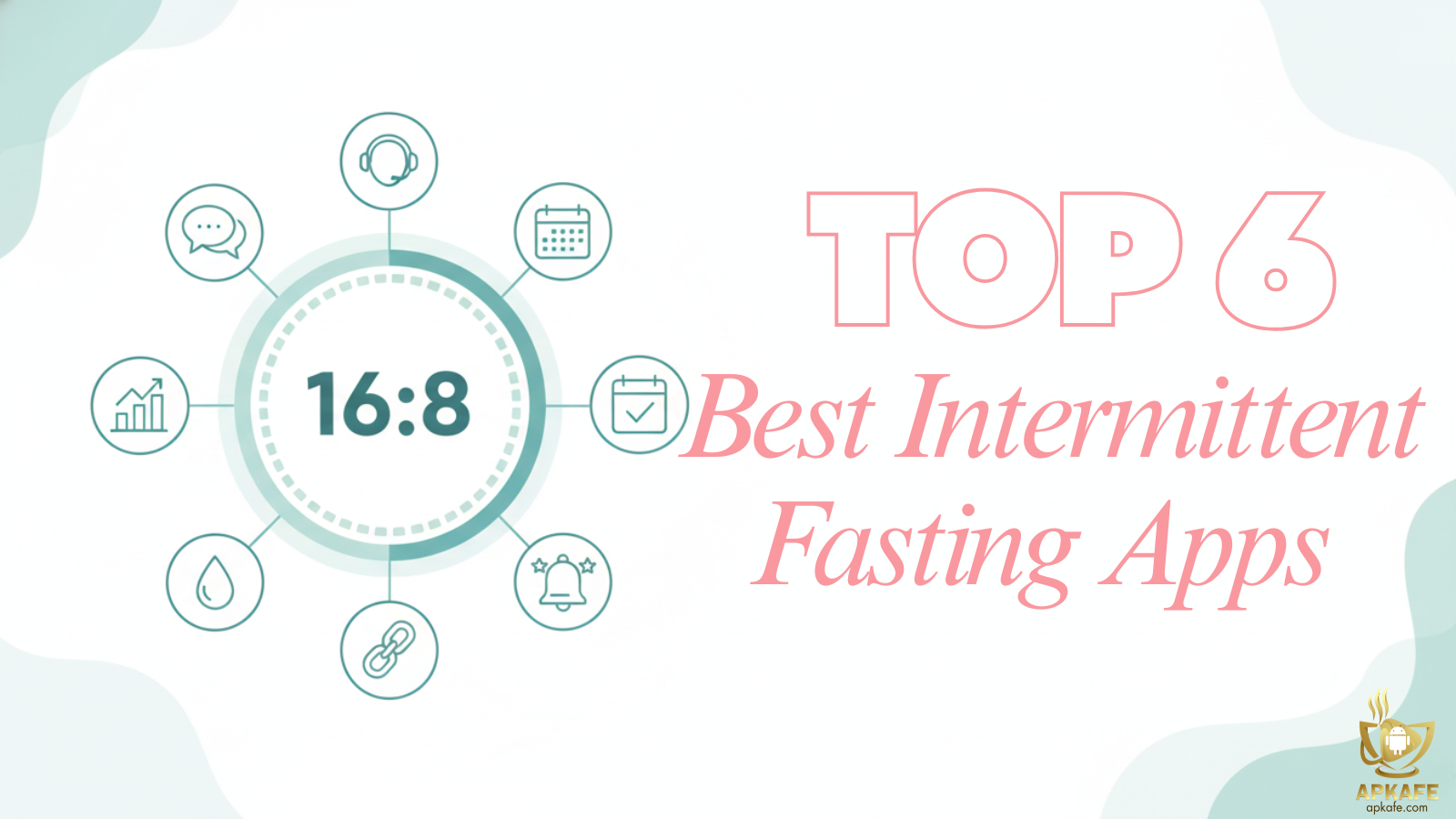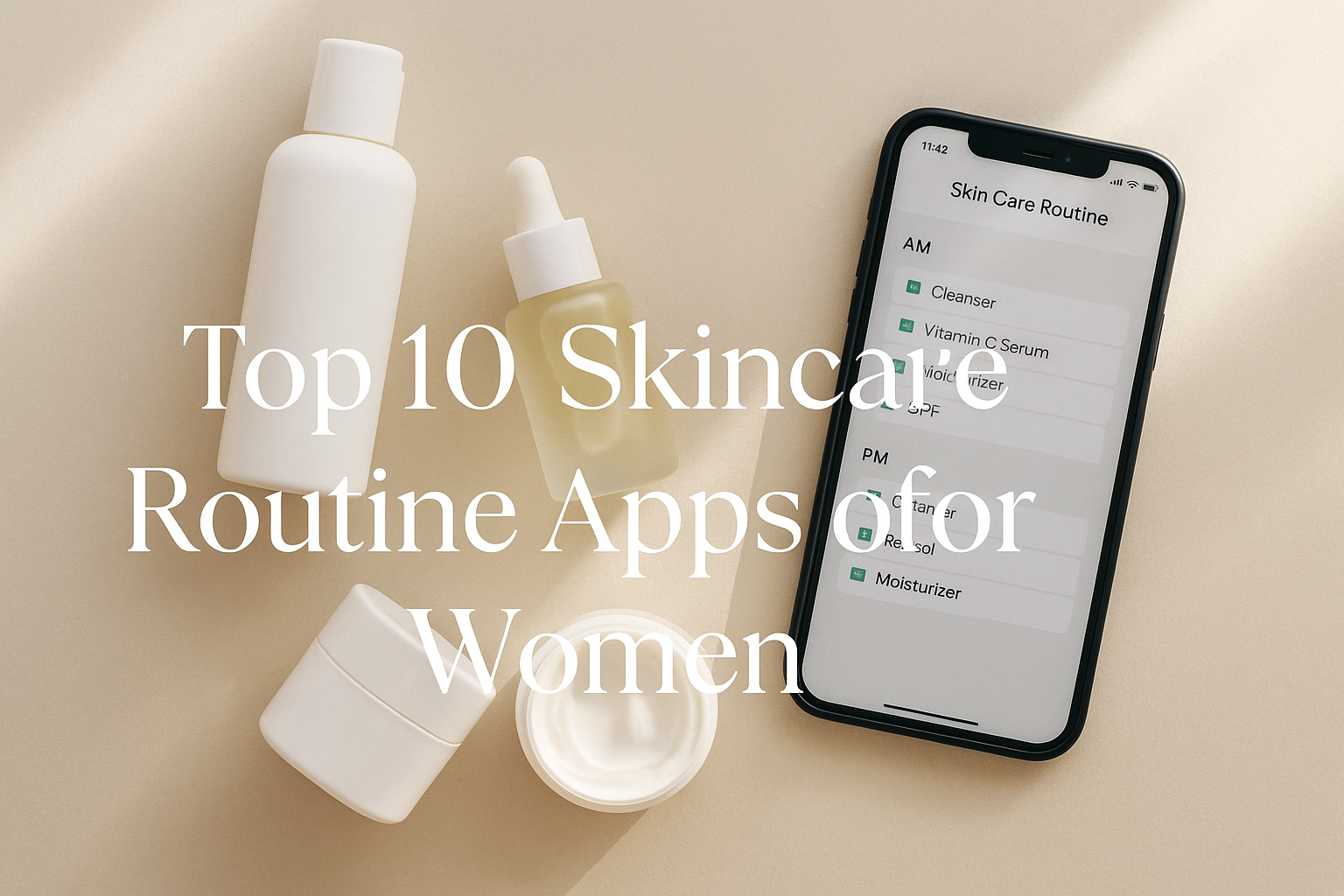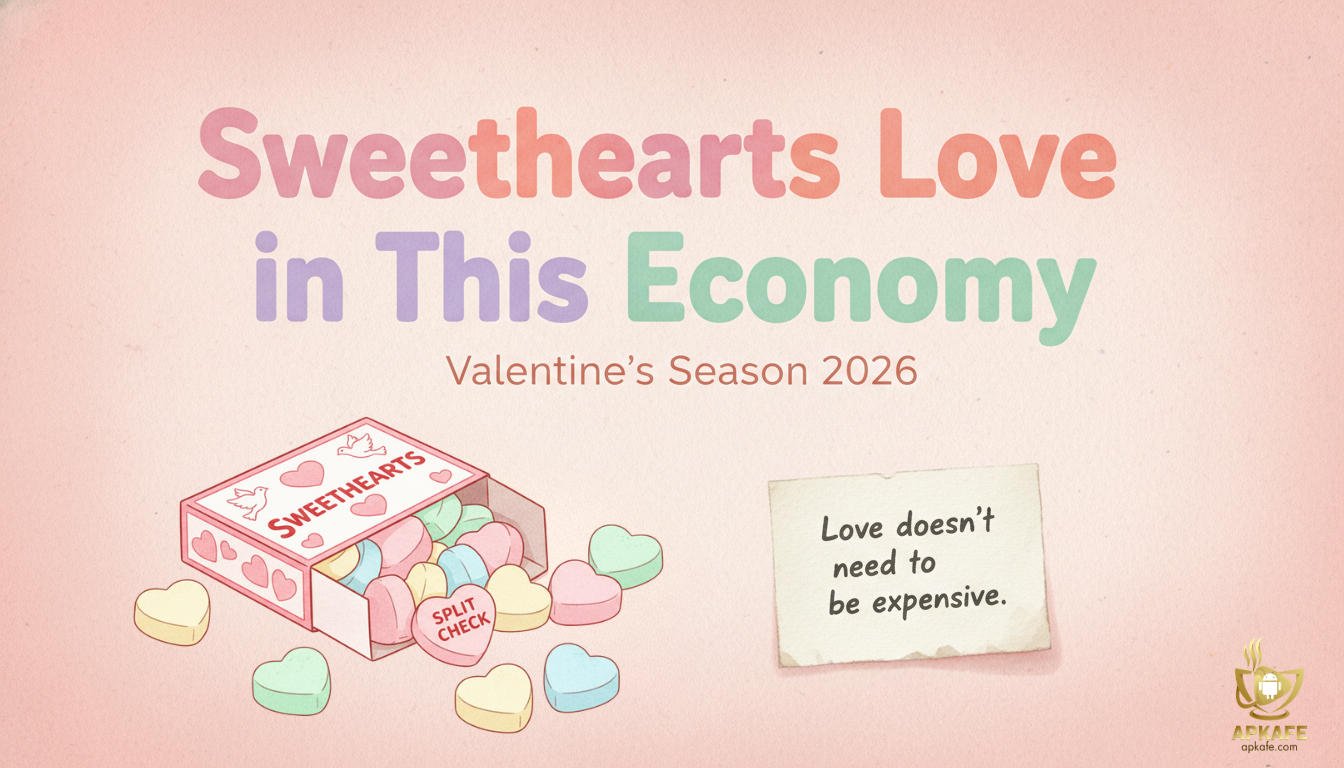Top 6 Best Mental Wellness Apps
Ever notice how the very phone that stresses you out could also be your pocket therapist? In the next few minutes, you’ll uncover which mental-wellness apps truly quiet your mind — and which ones only pretend to. Modern life is a blur of notifications, deadlines, and emotional fatigue. 2025 has seen a new wave of mental wellness apps that blend neuroscience, mindfulness, and behavioral therapy into everyday tools for calm. This guide reviews the top 6 trusted apps—each tested for scientific grounding, user privacy, inclusivity, and real-world usability—so you can find your personal path to balance without scrolling in circles.
What Is a Mental Wellness App?
Understanding what counts as a mental-wellness app will help you skip the hype and choose real healing tools.
A mental wellness app is a mobile or digital tool designed to support emotional health, stress management, and self-awareness through guided exercises, mood tracking, or therapeutic techniques.
Unlike traditional health apps that track physical metrics, these focus on the mind–body connection—helping users build habits that calm the nervous system and improve resilience.
Common mental-wellness features include:
- Mindfulness & meditation: guided sessions to reduce stress and anxiety.
- Cognitive Behavioral Tools (CBT): thought-reframing and journaling exercises for self-reflection.
- Breathing & grounding practices: quick relief for panic or overwhelm.
- Mood or gratitude journaling: track emotions and triggers over time.
- Community & peer support: connect with others in safe, moderated spaces.
With mental-health awareness growing, these apps make evidence-based care more accessible, giving users an entry point to healthier coping strategies—even between therapy sessions.
How We Chose These Apps
By the end of this section, you’ll have a 60-second checklist to spot your best-fit mental wellness app — one that supports your mind, not just fills your screen.
In this article, we analyzed over 30 mental-wellness tools, comparing expert reviews, user feedback, and independent clinical data.
Our selection focuses on apps that not only work in theory, but also fit into real lives — from busy professionals to students managing daily stress.
Here’s the transparent 5-point framework we used:
- Evidence & Effectiveness – Each app had to be grounded in proven methods such as Cognitive Behavioral Therapy (CBT), mindfulness, or neuroscience-based breathwork. Preference was given to tools validated by psychologists or supported by peer-reviewed research.
- Ease & Accessibility – Good mental health support must be inclusive. We prioritized apps that offer simple onboarding, gender-neutral language, accessibility features, and gentle learning curves for all ages and backgrounds.
- Integrations & Habit Support – The best tools help you build consistency. We looked for apps that sync with wearables, journals, or health dashboards, encouraging small daily habits rather than one-off sessions.
- Privacy & Data Transparency – Because your mental health data deserves protection. Each app was reviewed for clear permissions, optional offline mode, and anonymized analytics, ensuring users remain in control.
- Value for Money – We compared free-tier usefulness and upgrade fairness. Apps that deliver real mental-wellness value without forcing subscriptions ranked highest.
Finally, every app was scored not for fleeting popularity, but for trust, emotional relevance, and long-term impact — the qualities that actually improve wellbeing.
Top 6 Best Mental Wellness Apps (2025)
Calm — Best for Stress, Sleep & Emotional Balance
Calm is the leading app for sleep, meditation, and relaxation. Discover guided meditations, Sleep Stories, and relaxing music to manage stress, enhance sleep, and improve overall well-being. Read on to explore its features, benefits, and how it compares to other popular apps.
Features:
Calm blends neuroscience-backed mindfulness with immersive soundscapes. Its library includes Daily Calm (10-minute guided resets), Sleep Stories voiced by celebrities, and focus music channels curated by mental-health experts. It also integrates with Apple Health to track mindful minutes and sleep time.
Best for: People with high workloads or insomnia who need a calming nightly ritual.
My Personal Review:
Using Calm for two weeks changed my nighttime routine. The combination of soft narration and ambient sound genuinely slowed my racing thoughts. While the premium cost can feel steep, the sense of stillness it creates before bed easily justifies it. It’s the only app that consistently helps me fall asleep faster without screens or stress.
Happify — Best for Cognitive Reframing & Daily Positivity
Happify transforms mental wellness into an interactive, science-backed journey. Grounded in positive psychology and Cognitive Behavioral Therapy (CBT), the app uses short games, quizzes, and reflection exercises to help rewire negative thought patterns. Each “track” focuses on a specific goal — from boosting self-esteem to managing stress or improving relationships. The more you play, the more personalized your emotional roadmap becomes. With its gamified design and evidence-based structure, Happify is perfect for users who want to build optimism in small, consistent steps rather than long meditation sessions.
Features:
Built on positive psychology and CBT (Cognitive Behavioral Therapy) principles, Happify turns emotional wellness into a game. Users progress through “Tracks” like Conquer Negative Thoughts or Build Gratitude using short tasks, quizzes, and journaling exercises. Each activity reinforces neural patterns linked to optimism.
Best for:
Students and professionals seeking structured, science-backed mood improvement.
My Personal Review: I was skeptical at first — games for happiness? But Happify’s CBT-based activities surprised me. Small wins, like completing “3 Gratitude Moments,” improved my mindset within days. The app feels lighthearted yet meaningful. My only wish is for more modern visuals, but the psychology behind it works beautifully for daily positivity training.
BetterHelp — Best for Online Therapy & Professional Mental Health Support
BetterHelp brings licensed therapy directly to your phone or laptop, making mental health care more accessible than ever. The app connects you with certified counselors through live video, voice, or chat sessions, letting you receive professional support without leaving home. Each therapist is vetted and matched based on your personal goals — whether managing anxiety, navigating relationships, or processing major life changes.
Beyond sessions, BetterHelp offers journaling tools, progress tracking, and secure communication features to help you stay consistent between appointments. It’s a private, flexible, and convenient option for users seeking real therapeutic guidance without long wait times or commutes.
- Access to certified, licensed therapists within 24–48 hours.
- Variety of communication formats — text, audio, or live video.
- Offers therapy for individuals, couples, and teens.
- Secure messaging with HIPAA-compliant data protection.
- Integrates well with self-help tools like journaling and emotion tracking.
- Premium cost (US $65–$90 per week).
- Not ideal for users needing crisis or psychiatric support.
- Therapist quality can vary depending on region or match accuracy.
Features:
BetterHelp is one of the world’s largest online therapy platforms, connecting users with over 30,000 licensed counselors through chat, video, or voice sessions. It offers flexible scheduling, unlimited messaging, and customized therapist matching based on goals, personality, and areas of concern (anxiety, relationships, trauma, etc.). The app includes journaling prompts and worksheets designed by psychologists to extend progress between sessions.
Best for: Adults seeking professional therapy access without in-person scheduling hassles — ideal for remote workers, busy parents, or users living in areas with limited mental health resources.
My Personal Review:
I tested BetterHelp for three weeks while balancing a demanding remote-work schedule. The experience felt surprisingly personal — my therapist remembered details from earlier sessions and adjusted exercises accordingly. The chat option made it easier to express thoughts in real time without the pressure of video calls. It’s not cheap, but the level of professional care and flexibility is unmatched among mental-wellness apps.
Headspace — Best for Guided Meditation & Habit Building
Explore Headspace, the comprehensive mental health app for meditation, mindfulness, and wellness. Learn about its features, benefits, pricing, user reviews, and how it compares to other apps.
Features:
Headspace is a pioneer in mindfulness education, offering multi-week courses on stress, productivity, and relationships. Animated explainers demystify meditation concepts, while new “Focus” and “Move” tabs combine light exercise with breathing. Integration with wearables allows for daily consistency tracking.
Best for: New meditators or visual learners wanting a supportive, research-led guide.
My Personal Review:
Headspace made meditation finally make sense to me. The short, animated lessons removed all the “mystery” from mindfulness. It’s approachable and non-judgmental — ideal for beginners. After a month, I noticed a measurable boost in focus and emotional control. It’s like having a personal coach for calm in your pocket.
Insight Timer — Best for Free Mindfulness & Global Community
One of the top-rated apps in this space is Insight Timer—a meditation app designed to help you find tranquility anytime, anywhere. With over 100,000 free guided meditations, sleep stories, and courses, Insight Timer offers a unique and accessible way to enhance your mental health. In this review, we’ll dive deep into the features, performance, and benefits of the Insight Timer app, along with some of its standout qualities.
Features:
Home to over 90,000 free meditations led by psychologists, monks, and mindfulness teachers. Features include live sessions, curated playlists for sleep or focus, and mood-based recommendations. A “Timer” mode lets users create personalized sessions with ambient sound layers.
Best for: Budget-conscious users or mindfulness enthusiasts who enjoy community learning.
My Personal Review:
I initially downloaded Insight Timer for its free meditations but stayed for its community. The diversity of teachers is inspiring — from Buddhist monks to psychologists. Some recordings are hit-or-miss in quality, yet the sheer choice means I always find something that fits my mood. It’s the best zero-cost mindfulness companion out there.
Moodfit — Best for Tracking Mood & Building Emotional Awareness
Moodfit app promises to provide you with personalized feedback and a variety of tools to improve your emotional health. In this review, we’ll explore how Moodfit works, its key features, and why it might be the perfect companion for those looking to improve their mood and manage their mental health.
Features:
Moodfit combines CBT worksheets, daily self-assessment, and habit tracking to map emotional trends. It visualizes correlations between sleep, exercise, and mood, helping users identify triggers. Includes gratitude journaling, mindfulness reminders, and breathing tools.
Best for: Data-driven users who want to understand their emotional patterns and adjust habits accordingly.
My Personal Review:
Moodfit turned my emotions into visible patterns. Logging mood, sleep, and exercise for a week revealed how movement directly improved my mood score. It’s data-heavy but deeply insightful. For self-reflective users who like seeing progress charts, Moodfit offers measurable proof that small habits truly shape mental health.
FAQs — Mental Wellness Apps
- Do mental-wellness apps really work?
Yes — when used consistently, they can reduce anxiety, improve sleep, and build emotional awareness. Tools like Calm and Happify are grounded in cognitive behavioral science and mindfulness research. - Can I use these apps instead of therapy?
No. Mental-wellness apps support therapy but don’t replace it. They reinforce coping skills between sessions or act as gentle introductions to mindfulness and self-care. - Which app is best for beginners?
Try Headspace. It uses short, guided sessions and simple visuals that make it easy to start a daily habit. - Are the free versions enough?
For most users, yes. Insight Timer and Moodfit offer valuable free features for meditation and mood tracking. Paid tiers only add advanced analytics or personalized coaching. - How can I stay consistent with mindfulness?
Link your sessions to daily triggers: morning coffee, commute, or bedtime wind-down. Most apps allow you to set gentle reminders that build routine over time.
Final Thoughts: Your Mind Deserves Maintenance, Too
By now, you’ve met seven digital companions that can help you breathe deeper, sleep better, and think clearer.
The truth is, mental wellness isn’t a single download — it’s a daily practice. These apps don’t cure stress overnight, but they can turn mindfulness into a habit as familiar as checking messages.
Whether you prefer the quiet focus of Calm, the science-based exercises of Happify, the best app is the one you’ll actually use consistently, compassionately, and privately.
Before installing, remember to review permissions, set healthy screen boundaries, and consult professionals for medical guidance when needed. Your mental space is sacred, treat it with the same care you’d give to your physical health.
User Reviews

